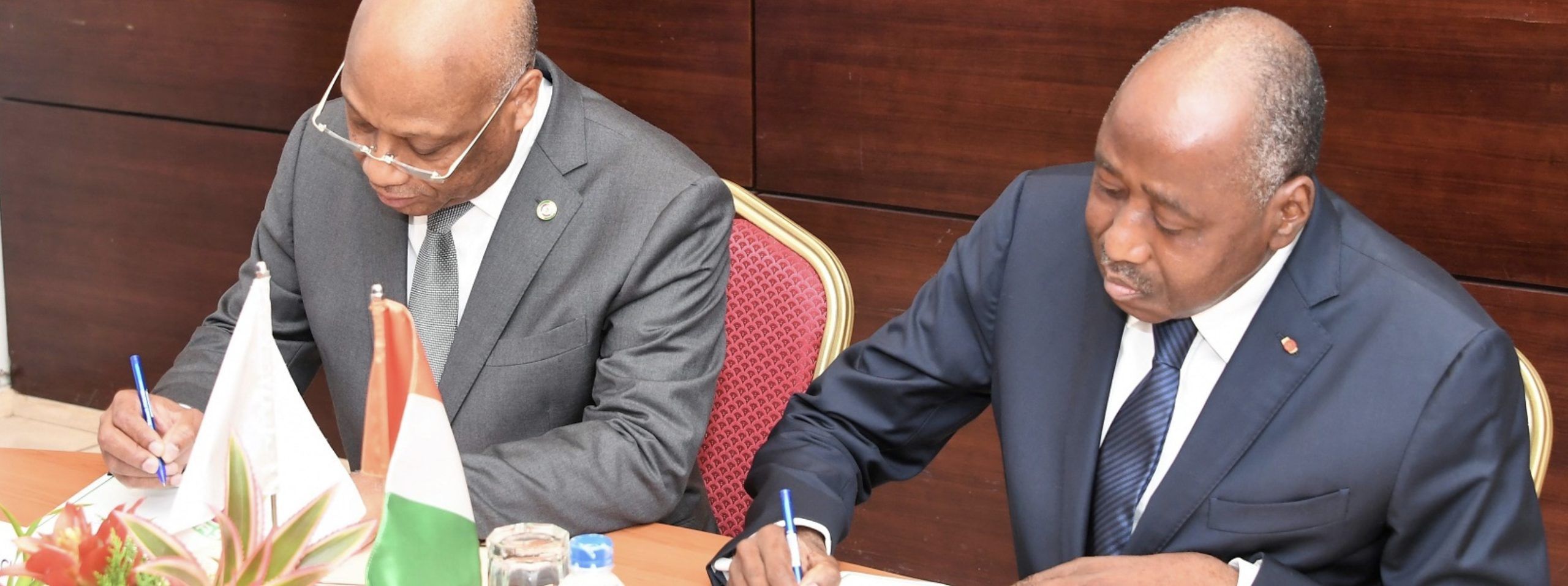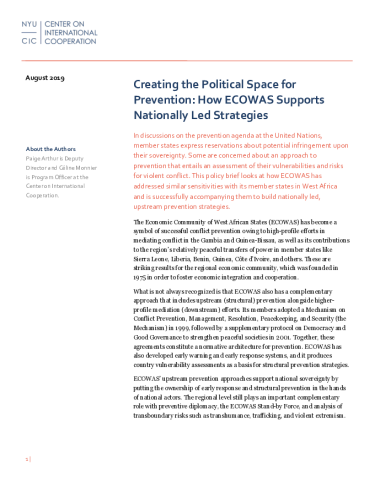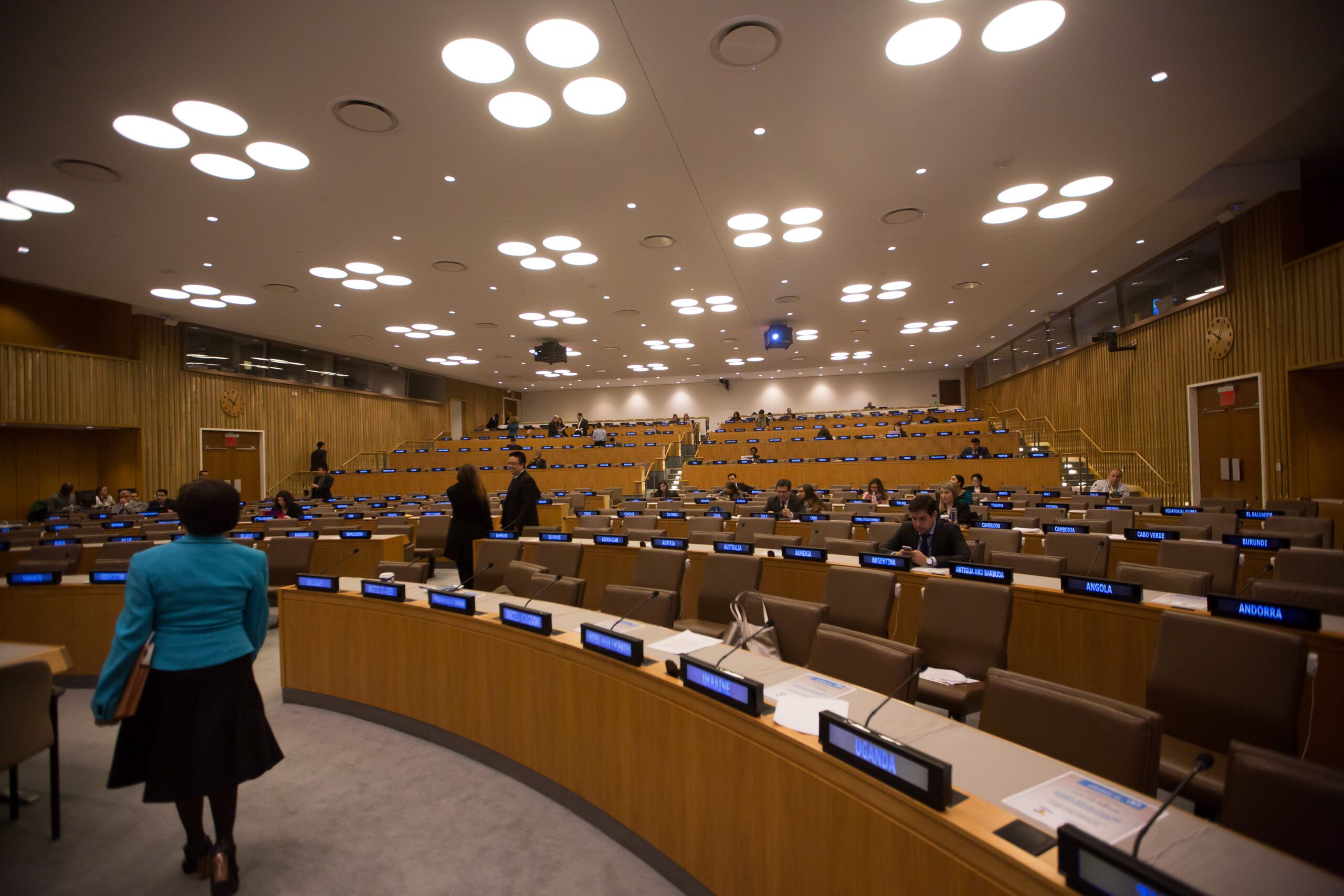This policy brief examines how ECOWAS has successfully addressed the concerns of their member states in West Africa to build nationally led, upstream prevention strategies. ECOWAS’ upstream prevention approaches support national sovereignty by putting the ownership of early response and structural prevention in the hands of national actors.

The fourth paper in our series on prevention at the United Nations examines the Economic Community of West African States’ (ECOWAS) prevention approach, which combines both upstream and short-term preventive diplomacy and mediation initiatives.
Looking at the ECOWAS model, this paper analyzes the regional frameworks in place, particularly the Mechanism on Conflict Prevention, Management, Resolution, Peacekeeping, and Security and Protocol on Democracy and Good Governance, established in 1999 and 2001 respectively, after nearly a decade of conflicts in the region. The paper highlights ECOWAS’ universal prevention approach, which seeks to increase society’s resilience to violence in the face of shocks or vulnerabilities.
Since 2013, ECOWAS has also focused on improving its early warning capability and developing effective mechanisms to respond to warnings. It has sought to build trust among its member states on the issue of prevention, employing transparent and thoughtful approaches to addressing social and political sensitivities, as well as worked to build national capacities.
The paper concludes by assessing how the ECOWAS approach to prevention can inspire broader discussion around multilateral efforts for prevention.
Read the full paper: Creating the Political Space for Prevention: How ECOWAS Supports Nationally Led Strategies.pdf
More in the prevention series:
- Unpacking Prevention: Member State Perspectives (April 16, 2019)
- Nationally Led Prevention: Practical Examples of Approaches to Risk and Resilience (June 25, 2019)
- The Prevention Agenda: Mapping Out Member States’ Concerns (July 2, 2019)
- Breaking the Siloes: Pragmatic National Approaches to Prevention (August 30, 2019)
- Development and Prevention: National Examples of Linkages (August 31, 2019)


